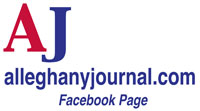Virginia LEARNS Workgroup Releases Guidance on School Reopening and Recovery
|
|
Richmond, VA (April 13, 2021) - A school-reopening workgroup appointed in February by Superintendent of Public Instruction James Lane released a new guidance document Tuesday to assist schools and divisions as they resume or expand in-person instruction and plan for the 2021-2022 school year.
Navigating Virginia Education in Uncertain Times provides recommendations and identifies resources and best practices related to equity, curricula — especially in literacy and mathematics — remediation and intervention strategies, assessments, data analysis, student and staff wellness, and technology to support instruction and learning.
In developing the guidance and resource document, the Virginia LEARNS (Leading, Engaging, Assessing, Recovering, Nurturing and Succeeding) workgroup — which included educators, school administrators, mental health professionals, parents and leaders of community organizations — analyzed comments from 880 members of the public. Slightly more than half of those submitting comments were parents and other caregivers, and 44% were teachers, principals and other educators.
“This winter, stakeholders representing a variety of perspectives and experiences came together to form the Virginia LEARNS workgroup to map the way forward for the commonwealth’s schools as they continue their journey through these extraordinary times while striving to support the success of every student,” Lane said. “I am incredibly grateful for their willingness to serve on the Virginia LEARNS workgroup and for lending their expertise and time to this important initiative.”
After analyzing the public comment, comparing personal experiences, and reviewing input from colleagues in the field, the workgroup identified the following themes to guide local decision-making during the spring, summer and fall:
• Schools need to reopen with particular attention to vulnerable student populations and their unique needs.
• While virtual learning may be appropriate for some learners, it is not the best instructional format all learners.
• The shutdown has had a negative impact on the social emotional well-being of many students and staff. Schools need to deploy additional staff to meet these needs — e.g., counselors, social workers and psychologists.
• Remediation and recovery efforts need to be tailored to the unique academic needs of each learner based on current assessments, and provided in a variety of manners — engaging summer programs, alternate school day schedules, in person and virtually.
• Allocation of resources should be equitable and reflective of core values.
• Safety protocols must be clearly articulated and implemented with fidelity.
• Technology hardware, software and internet access must be readily available across each community. Training to effectively use and access technology resources is essential.
• Additional staff should be employed to keep student-teacher ratios low and to enable targeted, personalized instructional support.
• Consistent and clear communication is essential.
• Community partnerships are vital to recovery efforts.
“Those who write the history of these times will document the impact of the pandemic on public education and how school leaders at the local, state and national levels responded to the needs of teachers, students and families,” Charlottesville Superintendent and Virginia LEARNS Chair Rosa Atkins said. “I believe that Navigating Virginia Education in Uncertain Times will serve as an important resource for all of our schools and serve as a model of prudent leadership and effective collaboration in response to unprecedented challenges.”
The Virginia LEARNS workgroup used the Virginia Department of Education’s July 2020 Recover, Redesign, Restart 2020 guidance document as its starting point in creating the new reopening resource for school divisions.
Navigating Virginia Education in Uncertain Times identifies checkpoints on key issues related to reopening schools and provides recommendations for reflection and action at the classroom, school and central office levels. The document also includes links to relevant resources vetted by VDOE staff.
The recommendations emphasize the importance of equity in decision-making and prioritizing the needs of the most vulnerable students in assessing and addressing learning losses. Assessing and supporting the social and emotional health of students are emphasized in all aspects of reopening.
“I believe that educators and school leaders should consider the fact that before we can close learning gaps, we must first provide everyone with the emotional and social support that they may need,” said Anthony Swann, 2021 Virginia Teacher of the Year and Board of Education and Virginia LEARNS workgroup member. “We must remember that our students are humans first and should address those needs before tackling learning loss.”
Navigating Virginia Education in Uncertain Times also recommends that school divisions consider adjustments to daily school schedules, school calendars and instructional delivery models as they formulate plans to address unfinished learning while ensuring strict adherence to evolving guidance on building capacity and social distancing. | | | | | |
|



